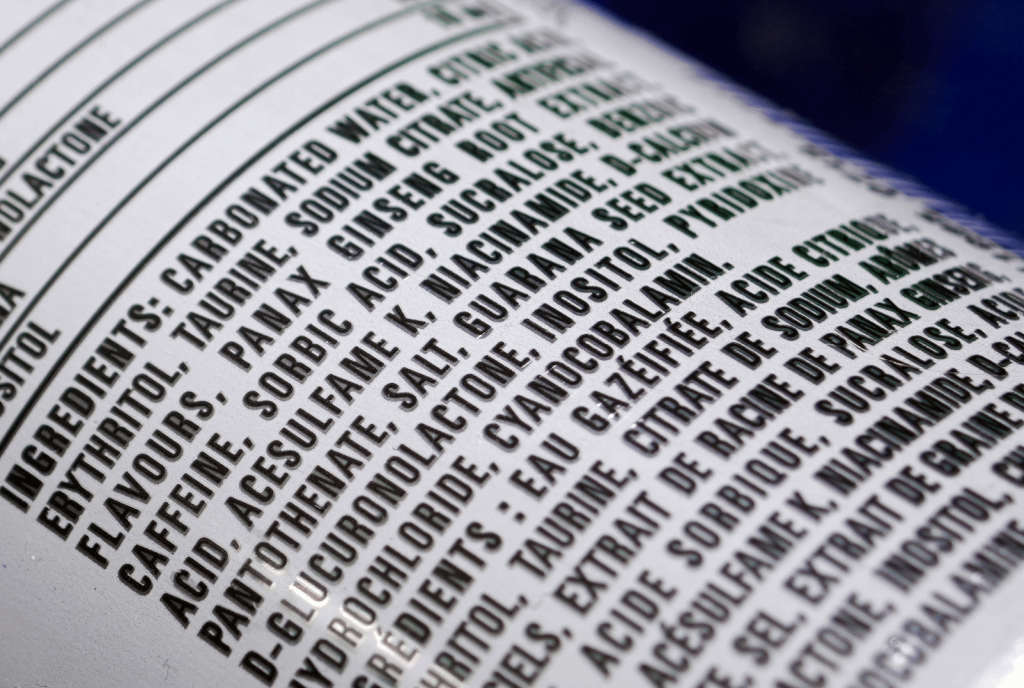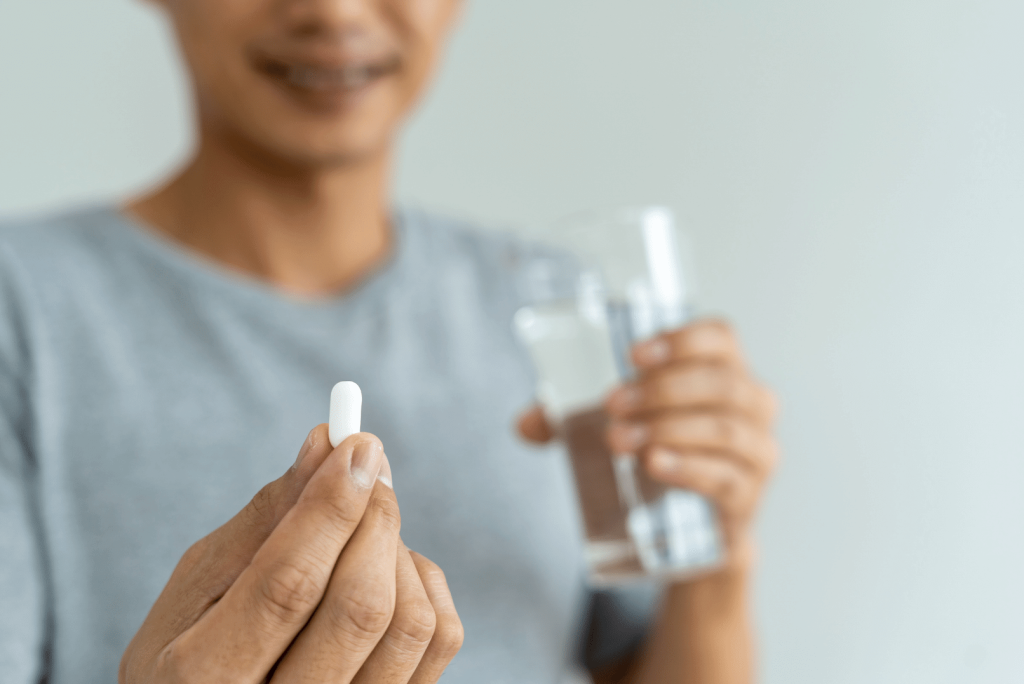
HPA Axis Dysfunction Part 2: Solutions


HPA Axis Dysfunction Part 2: Solutions
Optimize Sleep
Getting optimal sleep not only helps regulate your circadian rhythm and the natural cycle of cortisol release, but it also helps manage your stress levels.
Deep sleep, in particular, helps regulate your HPA axis. When you get sufficient sleep (seven to eight hours) it inhibits your HPA axis activity and reduces cortisol secretion. This allows you to better respond to stressors throughout the day without leading to HPA axis dysfunction.
For tips on how to optimize your sleep, check out this blog post.
Deal With Mental And Emotional Stress
Stress is at the root of HPA axis dysfunction, and having the right tools to help you deal with mental and emotional stress is critical. How you best deal with stress is individual, but here are some science-backed suggestions.
Yoga

A literature review exploring the therapeutic effects of yoga determined that, among the many benefits of yoga, it reduces stress levels and improves sleep patterns.
EFT
Emotional Freedom Technique (EFT) or Tapping, which stimulates eight acupressure points, can be easily done independently and effectively relieves stress and anxiety.
Mindfulness
A literature review investigating the effectiveness of mindfulness on stress reduction found that mindfulness techniques that only pay attention to the present moment were successful in reducing stress.
Regular Exercise
Exercising can regularly improve the way your body handles stress. Aiming for the recommended 150 minutes weekly is an excellent place to start. Just remember not to overdo it.
Visit Nature
Get outside and spend some time in a green space. When you do this, you can reduce both physical and psychological stress. Exercising in a natural environment can also give you an extra stress-relieving boost.
Enjoy A Cup of Tea
Having a cup of tea, especially after a stressful event, reduces your cortisol levels and helps speed up stress recovery.
There are also many other modalities such as psychotherapy and neurofeedback. Consider seeing a qualified mental health professional who can tailor these modalities for you.
Remove Food Sensitivities
Removing food sensitivities from your diet helps prevent inflammation, which you already know acts like a stressor to your body and HPA axis.
Removing food sensitivities also helps heal leaky gut. In an animal study, researchers explored the connection between leaky gut and HPA axis dysfunction. They gave subjects probiotic Lactobacillus farciminis to help with leaky gut and found that this was key to reducing the stress response due to the food they ate.
One way to determine if you have food sensitivities and what they might be is by keeping a food journal and tracking how you feel after eating certain foods.

Check Your Environment For Inflammation Sources Such As Allergens And Mold Toxins
Exposure to environmental allergens (like dust or pollen) or toxins (like mold toxins and chemicals) causes inflammation inside your body. The HPA axis gets stimulated, leading to the release of cortisol to mitigate inflammation.
A study of 13 individuals sought to understand the connection between an allergic reaction and the HPA axis. Researchers measured cortisol levels of subjects exposed to a confirmed plant allergen compared to those who were not allergic. Even after one single exposure, subjects who were allergic to the plant experienced a significant increase in cortisol levels.
If just one-time exposure can activate the HPA axis, imagine if you experience constant exposure from your environment. You may wish to see an allergist to test for environmental allergies or have a professional mold inspector check your environment.
Meditate
Make it a point to meditate regularly if that works for you. Meditation has been proven to:
- Alleviate stress
- Reduce anxiety
- Promote overall well-being
A controlled eight-week study of 27 individuals focused on understanding how meditation may affect HPA access functioning. Researchers measured subjects’ awakening cortisol levels throughout the study. Those who practiced meditation over the eight weeks had lower cortisol levels than those who did not meditate.
Stimulate The Vagus Nerve
Your vagus nerve is the longest in your body and the main nerve in your parasympathetic system. It influences your:
- Breathing
- Heart rate
- Digestion
It’s also a direct line of communication between your gut microbes and your brain. And it’s an excellent tool for reducing inflammation.
Stimulating your vagus nerve may help calm an overactive HPA axis response and reduce stress. Clinical studies show that stimulating the vagus nerve helps normalize cortisol levels.
Vagus nerve stimulation also increases the communication between your gut and your brain. This can help maintain your gut health and prevent the dysbiosis problem we discussed earlier.
So how do you stimulate the vagus nerve? The FDA has an approved surgically implanted device, but don’t worry. There are simple ways you can do it on your own every day. Here are some strategies to try:
- Cold exposure: Take a cold shower. Go outside when it’s cold. Apply a cold pack to the side of your neck.
- Take slow and deep breaths.
- Chanting “Om” – commonly used in some yoga practices
- Laughing
- Neck massage
Take Magnesium

Magnesium is essential to over 300 processes in your body, many of which help with regulating the stress response. Specific to your stress response and HPA axis function, Magnesium:
- Promotes better sleep
- Balances your inflammatory response
- Boosts your mood
- Supports a healthy stress response
A literature review explored the vicious cycle between low magnesium and stress levels. Researchers determined that there is a two-way relationship between magnesium and stress. When your magnesium levels are low, you are more susceptible to stress. And when you experience more stress, that may increase magnesium loss.
This article is a great source to learn more about how much magnesium you need and How to Maximize Magnesium Absorption to help support your stress response.
One of the best ways to ensure you are getting the magnesium you need is by taking a supplement containing all seven forms of the magnesium your body needs. You can find this in Magnesium Breakthrough.
Use Adaptogens And Nootropics
Adaptogens do not replace addressing the root causes of stress. No supplement can replace sleep, movement, or eliminating environmental exposures that tax your stress response system.
However, adaptogens and nootropics are a great way to support your stress response system and mitigate some negative health effects of day-to-day stressful situations. Adaptogens help normalize our stress responses by working on the HPA axis.
A meta-analysis studied the effects of adaptogens on the central nervous system. Researchers found that adaptogens, such as Rhodiola rosea and Schisandra, help the HPA axis maintain homeostasis. They can also help maintain cognitive performance, focus, and energy levels in stressful situations.
BIOptimizers has the perfect new formula to support healthy stress levels: Stress Guardian. In it, you’ll find not only Rhodiola rosea and Schisandra, but also a blend of several other adaptogens. It’s formulated for balance based on Chinese medicine principles.
Access some of the best Nootropics on the market with Nootopia and find the best stack for you.
Takeaway
Your HPA axis is a primary regulator of your stress response. Many factors can activate your stress response without you even knowing it. So most people nowadays have some degree of HPA axis dysfunction. The stress could be mental or physical, or from poor lifestyle, diet choices, and gut dysbiosis. To help avoid this, start by following these steps:
- Optimize your sleep and get seven to eight hours of quality sleep every night.
- Address your emotional stress with yoga, EFT, meditation, and other modalities as appropriate
- Remove suboptimal foods and environmental factors that stress your body out
- Take magnesium daily
Explore adaptogenic herbs like Stress Guardian and nootropics to support a healthy stress response.
References
- Nicolaides NC, Vgontzas AN, Kritikou I, Chrousos G. HPA Axis and Sleep. MDText.com; 2020.
- Woodyard C. Exploring the therapeutic effects of yoga and its ability to increase quality of life. Int J Yoga. 2011;4(2):49-54. doi:10.4103/0973-6131.85485
- Blacher S. Emotional Freedom Technique (EFT): Tap to relieve stress and burnout. J Interprof Educ Pract. 2023;30(100599):100599. doi:10.1016/j.xjep.2023.100599
- Sharma M, Rush SE. Mindfulness-based stress reduction as a stress management intervention for healthy individuals: a systematic review: A systematic review. J Evid Based Complementary Altern Med. 2014;19(4):271-286. doi:10.1177/2156587214543143
- Jackson EM. Stress relief: The role of exercise in stress management. ACSMs Health Fit J. 2013;17(3):14-19. doi:10.1249/fit.0b013e31828cb1c9
- Ewert A, Chang Y. Levels of nature and stress response. Behav Sci (Basel). 2018;8(5). doi:10.3390/bs8050049
- Steptoe A, Gibson EL, Vuononvirta R, et al. The effects of tea on psychophysiological stress responsivity and post-stress recovery: a randomised double-blind trial. Psychopharmacology (Berl). 2007;190(1):81-89. doi:10.1007/s00213-006-0573-2
- Ait-Belgnaoui A, Durand H, Cartier C, et al. Prevention of gut leakiness by a probiotic treatment leads to attenuated HPA response to an acute psychological stress in rats. Psychoneuroendocrinology. 2012;37(11):1885-1895. doi:10.1016/j.psyneuen.2012.03.024
- Kalogeromitros D, Syrigou EKI, Makris M, et al. Nasal provocation of patients with allergic rhinitis and the hypothalamic-pituitary-adrenal axis. Ann Allergy Asthma Immunol. 2007;98(3):269-273. doi:10.1016/s1081-1206(10)60717-x
- Klimes-Dougan B, Chong LS, Samikoglu A, et al. Transcendental meditation and hypothalamic-pituitary-adrenal axis functioning: a pilot, randomized controlled trial with young adults. Stress. 2020;23(1):105-115. doi:10.1080/10253890.2019.1656714
- Rangon CM, Niezgoda A. Understanding the pivotal role of the vagus nerve in health from pandemics. Bioengineering (Basel). 2022;9(8):352. doi:10.3390/bioengineering9080352
- Müller SJ, Teckentrup V, Rebollo I, Hallschmid M, Kroemer NB. Vagus nerve stimulation increases stomach-brain coupling via a vagal afferent pathway. Brain Stimul. 2022;15(5):1279-1289. doi:10.1016/j.brs.2022.08.019
- Jungmann M, Vencatachellum S, Van Ryckeghem D, Vögele C. Effects of cold stimulation on cardiac-vagal activation in healthy participants: Randomized controlled trial. JMIR Form Res. 2018;2(2):e10257. doi:10.2196/10257
- Kalyani BG, Venkatasubramanian G, Arasappa R, et al. Neurohemodynamic correlates of “OM” chanting: A pilot functional magnetic resonance imaging study. Int J Yoga. 2011;4(1):3-6. doi:10.4103/0973-6131.78171
- Haddad C, Haddad-Lacle JEM. Laughter-induced syncope. BMJ Case Rep. 2013;2013(jul16 1):bcr2013010169-bcr2013010169. doi:10.1136/bcr-2013-010169
- Meier M, Unternaehrer E, Dimitroff SJ, et al. Standardized massage interventions as protocols for the induction of psychophysiological relaxation in the laboratory: a block randomized, controlled trial. Sci Rep. 2020;10(1):14774. doi:10.1038/s41598-020-71173-w
- Pickering G, Mazur A, Trousselard M, et al. Magnesium status and stress: The vicious circle concept revisited. Nutrients. 2020;12(12):3672. doi:10.3390/nu12123672
- Panossian A, Wikman G. Effects of adaptogens on the central nervous system and the molecular mechanisms associated with their stress-protective activity. Pharmaceuticals (Basel). 2010;3(1):188-224. doi:10.3390/ph3010188
